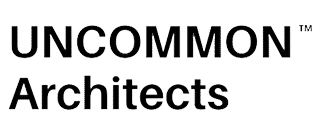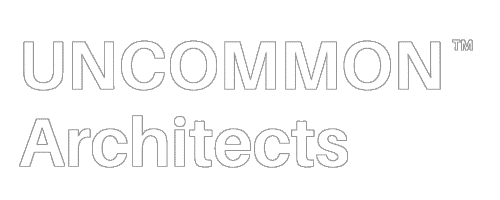Definition:
White Hat SEO refers to the ethical and best practices used to optimize a website’s visibility in search engine results pages. In the context of architecture marketing, White Hat SEO involves following search engine guidelines, creating high-quality content, and implementing strategies that focus on user experience and relevance.
Detailed Description
White Hat SEO prioritizes long-term results and sustainable growth by adhering to search engine rules and regulations. It involves techniques such as keyword research, on-page optimization, link building, and content creation that benefit both users and search engines.
Applications in Architecture
White Hat SEO is crucial for architects looking to increase their online visibility and attract potential clients. By implementing White Hat SEO strategies, architects can improve their website’s ranking on search engines, drive organic traffic, and establish credibility in the industry.
Uses:
Architectural firms can use White Hat SEO to enhance their online presence, reach a larger audience, and generate more leads. By focusing on ethical practices, architects can build a solid foundation for sustainable growth and long-term success.
Examples:
For example, an architectural firm that consistently publishes high-quality content, optimizes their website for relevant keywords, and earns backlinks from reputable sources is likely to see an increase in organic traffic and improved search engine rankings.
Implementation
Procedure:
To implement White Hat SEO effectively, architects should conduct keyword research, optimize their website structure and content, earn quality backlinks, and monitor and evaluate the results regularly. By following best practices and staying updated on search engine algorithms, architects can achieve sustainable success in SEO.
Steps:
1. Conduct keyword research to identify relevant terms for targeting.
2. Optimize website content and meta tags for selected keywords.
3. Earn backlinks from authoritative websites within the architecture industry.
4. Monitor website performance and make necessary adjustments based on data analysis.
Considerations
White Hat SEO is a long-term strategy that requires patience and consistent effort to see results. By focusing on providing value to users and following ethical guidelines, architects can build a strong online presence and establish credibility in the industry.
Expected Outcomes
By implementing White Hat SEO strategies, architectural firms can expect to see an increase in organic traffic, higher search engine rankings, improved visibility in relevant searches, and a stronger online reputation.
Outcomes:
The use of White Hat SEO can lead to increased website traffic, higher conversion rates, improved brand awareness, and enhanced client trust and loyalty. By following ethical practices, architects can build a sustainable online presence and attract more potential clients.
Impact:
The impact of implementing White Hat SEO includes improved website performance, increased lead generation, better search engine visibility, and long-term growth in online presence. By monitoring key performance indicators and adjusting strategies as needed, architects can maximize the benefits of White Hat SEO.
Maintenance and Monitoring
Regular monitoring and maintenance of White Hat SEO practices are essential to ensure continued success and compliance with search engine guidelines.
Best Practices:
Regularly update website content, monitor keyword performance, conduct regular audits, and stay informed about industry trends to maintain the effectiveness of White Hat SEO strategies.
Strategies:
Implement a content calendar, track website metrics, analyze competitor strategies, and adapt to algorithm changes to keep White Hat SEO efforts effective and relevant.
Additional Information
Related Terms
Associated Concepts:
White Hat SEO is often associated with keyword research, on-page optimization, link building, content marketing, and user experience optimization in architectural marketing strategies.
Connections:
These related terms work together to create a comprehensive SEO strategy that focuses on providing value to users, optimizing website content, and building credibility in the industry.
Recent Trends
Innovations:
Recent innovations in White Hat SEO include the use of structured data markup, voice search optimization, and mobile-first indexing to improve website visibility and user experience.
Updates:
Stay informed about search engine algorithm updates, industry best practices, and emerging trends in SEO to ensure that White Hat SEO strategies remain effective and up-to-date.
How Uncommonarchitects.com can help you with this
Uncommon Architects can provide tailored White Hat SEO services to help architectural firms improve their online visibility, attract more traffic, and generate leads. By implementing ethical and effective SEO strategies, Uncommon Architects can help firms achieve sustainable growth and success in the digital landscape.
Explain how:
Uncommon Architects offers expertise in White Hat SEO techniques, content optimization, and website performance analysis to help architectural firms achieve their marketing goals. By partnering with Uncommon Architects, firms can benefit from personalized strategies that drive results and enhance online presence.
Benefits:
The benefits of working with Uncommon Architects include increased website traffic, improved search engine rankings, enhanced brand visibility, and better engagement with target audiences. Contact Uncommon Architects today to learn more about how we can help elevate your architectural marketing efforts.
Are you ready to transform your studio?
FAQs
What is White Hat SEO?
White Hat SEO refers to the use of optimization strategies, techniques, and tactics that focus on a human audience and adhere to search engine policies and guidelines.
How does White Hat SEO differ from Black Hat SEO?
White Hat SEO follows search engine guidelines and aims to provide value to users, while Black Hat SEO involves manipulative tactics that violate search engine rules.
What are some common White Hat SEO techniques?
Common White Hat SEO techniques include creating quality content, optimizing website structure, using relevant keywords, and building high-quality backlinks.
Why is White Hat SEO important for architects?
White Hat SEO helps architects attract more relevant traffic to their websites, improve visibility in search results, and build a reputable online presence.
Can architects benefit from ethical SEO practices?
Yes, architects can benefit greatly from ethical SEO practices like White Hat SEO, which can enhance their online reputation and attract potential clients.
How can architects implement White Hat SEO on their websites?
Architects can implement White Hat SEO by creating informative content, optimizing meta tags, improving website speed, and engaging in ethical link building practices.
What role does content quality play in White Hat SEO for architects?
Content quality is crucial in White Hat SEO for architects as it helps attract organic traffic, engage users, and establish expertise and authority in the industry.
Are there any specific White Hat SEO strategies tailored for architectural firms?
Yes, architectural firms can focus on local SEO, showcase their projects through visuals, optimize for mobile users, and utilize schema markup to enhance their online presence.
How long does it take to see results from White Hat SEO efforts for architects?
Results from White Hat SEO efforts for architects can vary, but typically, improvements in search engine rankings and organic traffic can be seen within a few months of consistent implementation.
What are some best practices for architects to maintain White Hat SEO integrity?
Architects can maintain White Hat SEO integrity by regularly updating content, monitoring website performance, avoiding keyword stuffing, and staying informed about industry trends and search engine algorithm updates.

